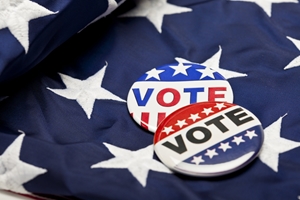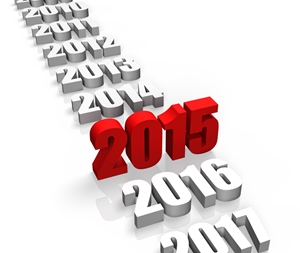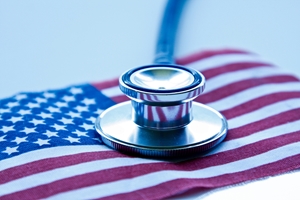
By and large, Americans are issue voters, desiring to choose the presidential candidate who is not only like-minded, but will make causes that they're interested in campaign cornerstones. And one of the chief items that voters want to be on the next commander-in-chief's agenda is the cost of health care, according to a newly released survey.
Among registered voters, 28 percent of the American public ranks the cost of their health care – whether in private or employee benefit form – as extremely important, based on a recent poll conducted by the Kaiser Family Foundation. Terrorism and the economy – at 38 percent and 34 percent, respectively – were the only two issues that outranked health care costs as being more important to candidates' winning their vote in the primaries.
Interestingly, however, Americans consider health care and the Affordable Care Act as two distinctly different entities. Only 23 percent of respondents in the KFF poll cited the ACA as an issue that they'd like their presidential candidate to tackle. Immigration, taxes, race relations and climate change were the only issues that voters believed were less important.
Uninsured rate down substantially
When the ACA was signed into law back in 2010 by President Barack Obama, the intention was both to lower the percentage of people without health insurance and also reduce their expenses. ObamaCare has succeeded in its first mission. For the first time in over a decade, the uninsured rate has dropped below 12 percent, according to a recent poll from Gallup. During the fourth quarter of last year, 11.9 percent of adults did not have a health insurance policy in place. That's down from 17.1 percent in 2013.
The decline in the uninsured rate has been even more precipitous at the state level. Three years ago, nearly 1 in 4 Arkansans weren't covered. As of last year, that rate has since changed significantly, with roughly 1 in 10 in the Sun Belt state uninsured, according to a separate survey also conducted by Gallup. The percentage of residents without insurance is even lower in Kentucky, Oregon and West Virginia at approximately 7 percent in each.
Premiums have risen and expected to jump further
What hasn't been nearly as prevalent are health insurance savings among the consumer public. Approximately 3 in 4 Americans says their premiums on health insurance rose over the past 12 months, according to a Gallup poll, up from 67 percent who indicated as much in 2014.
Health care consumers, for the most part, wouldn't be surprised if their premiums increase again in 2016. Nearly 45 percent of Americans expect to pay more for health coverage this year, based on a poll conducted by GOBankingRates.com. Approximately 23 percent said they anticipate a little bit more, while 20 percent forecast paying a much steeper price.





